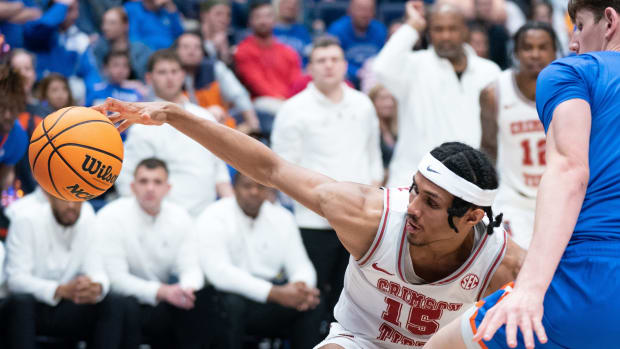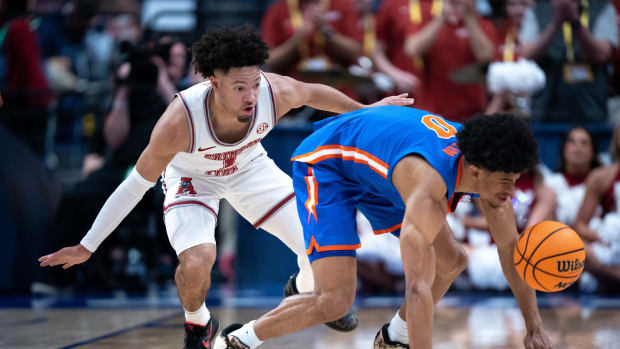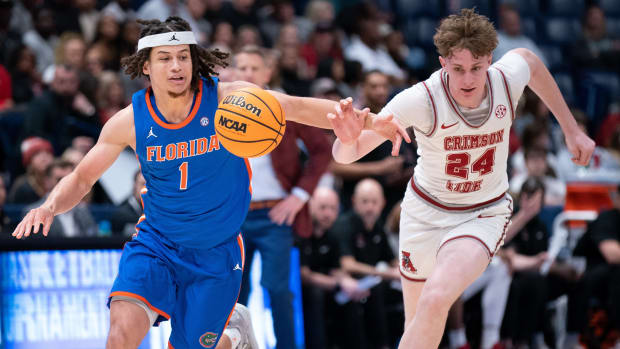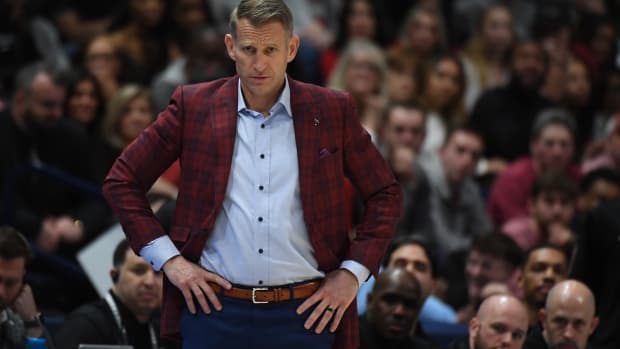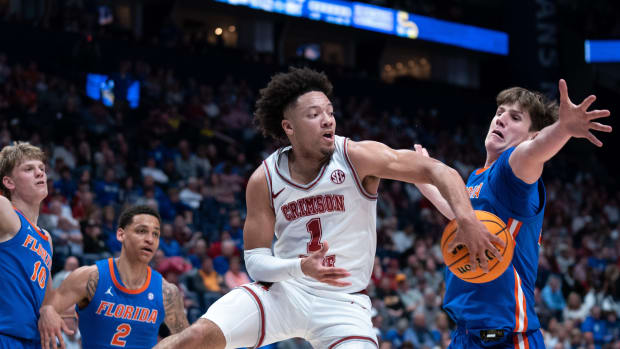The Man who Turned Alabama Athletics Around: Mal Moore
The smile was unforgettable, much like the game that had just been played, and even though he was deep in the recesses of the Rose Bowl it was easy to tell that no one could have been happier.
Mal Moore had done it. The rejuvenation, if not resurrection of the University of Alabama athletics program was complete, and with the football victory over Texas in the 2009 Bowl Championship Series title game everyone else knew it as well.
Everything had all come together, even better and faster than he had dared imagined, from the stadium renovations to leaving the open spot along the Walk of Champions that would subsequently be filled with a statue of Nick Saban.
"It was put there for this and I will recommend to the president that we go forth,” a thrilled Moore said after the 37-21 victory.
“Immediately?” a reporter asked.
"Yeah. Hell yeah," he responded. "It is really difficult to express just how proud I am.”
Actually, it probably should be the other way around as there have been few as beloved and cherished among the university’s true sons as the one who essentially gave 50 years of his life to Capstone and did everything in his power to make it a better place.
“Mal Moore is Crimson Tide sports,” former university president Dr. Judy Bonner said after Moore passed away 10 years ago, on March 30, 2013, at the age of 73, and no truer words could have been used about the man who left a legacy that will last decades, if not longer.
In addition to helping change its landscape and cultivating the Capstone as a destination for some of the finest coaches in the nation, he provided the foundation for turning Alabama athletics into the envy of nearly every other school in the nation.
You see, no one was more crimson than Moore, who as a player, coach and athletic director won ten national championships (1961, 1964, 1965, 1973, 1978, 1979, 1992, 2009, 2011 and 2012), along with 16 SEC titles and 39 bowl trips—not to mention national championships in gymnastics, softball and women’s golf.
Because no one had a more prestigious collection of landmark rings, watches and pins he was the Tiffany’s of college sports. The other part of that comparison is the corresponding high level of quality that in this case certainly applies.
“There is not a more gracious man than Mal, a man with more integrity than Mal, and there is no person who loves the university more than Mal Moore,” former gymnastics coach Sarah Patterson said.
And what a mark he made, going back to 1958 when Moore was a backup quarterback and then stuck around to be one of Paul W. “Bear” Bryant’s graduate assistants in 1964, defensive backfield coach from 1965-70, quarterbacks coach from 1971-82, and offensive coordinator from 1975-82.
He left to work for other teams, but Alabama always remained home, and on Nov. 23, 1999 he returned to be its Director of Athletics even though the program was largely in disarray. He didn’t know it at the time, but things were about to only get worse with a string of scandals and problems with the National Collegiate Athletic Association, culminating with the Committee of Infractions considering issuing the death penalty.
In order to turn things around he first had to get people to believe in Alabama again, which was not an easy task. Moore instituted a five-year facilities and endowment initiative, the Crimson Tradition Fund, which evolved into a $150 million campaign.
In addition to a major overhaul and expansion of Bryant-Denny Stadium, Coleman Coliseum and nearly every other athletic venue was upgraded, while Bryant Hall was converted into an academic center that Moore considered essential. The project was completed in 2006, and with then-university president Dr. Robert E. Witt making a strong push for expansion and higher academic standards it helped set the stage for Alabama’s renaissance.
In appreciation, the Alabama Board of Trustees renamed the new football building, which was one of the major parts of the facilities upgrade, the Mal M. Moore Athletic Facility.” Nevertheless, he orchestrated the $65 million expansion of the south end zone of Bryant-Denny Stadium, making it one of the largest and most desirable venues anywhere.
His defining moment, though, was convincing Saban to leave the National Football League’s Miami Dolphins to join him at the Capstone.
“The first thing he did was he recruited Terry,” Saban said about his wife after Moore flew down to make his pitch. “I called Terry and said I don’t think I’m even going to talk to these guys tonight. She said, ‘Oh, Mal’s already here. We’ve been talking for an hour.’ That was his first step in the right direction.”
Actually, it turned out to be the crucial step towards Alabama’s dynasty, maybe the greatest the sport had ever seen.
“Thank God he’s on our side,” Moore said about Saban after the rout against Notre Dame for the 2012 national title.
Roughly 10 weeks later, after Moore passed away, six of his friends and colleagues stood on a stage inside Coleman Coliseum for a public memorial, united not only the bond of the person they knew and honored, but also in how they struggled in describing him.
It wasn’t that they couldn’t come up with anything, just the opposite.
“He was like a father,” men’s golf coach Jay Seawell said. “I understand he’s my boss, he’s an athletics director, and we have a job to do, but I think Mal’s greatest attribute was he made me almost feel like a son.”
So many others felt the same way as the audience ranged from Moore’s family and some of the biggest names in Crimson Tide history to every Southeastern Conference athletic director, including his replacement Bill Battle. Mostly they reminisced about things that made Mal the man special, like his late wife Charlotte, upon whom he doted and took care of through her struggles with Alzheimer’s.
“Mal was the most selfless person I think I ever met,” said Saban, who’s happiest moment with Moore wasn’t after winning a championship, but occurred just a few months previous when he received the John L. Toner Award as the nation's top athletics director.
With a tear running down his cheek, "Mal said, 'You changed my life when you came here.’ I looked at him and said, 'No, Mal, you changed my life. I’m a better coach. I’m a better person. I’m better teacher for the lessons I have learned being in a partnership with you.’"
Some of this post originated from "100 Things Crimson Tide Fans Should Know & Do Before They Die," and a Daily Dose of Crimson Tide on BamaCentral.


